What if Elon Musk Was From China?
The Genius Who Never Played the Market
Would the world still know his name if the system never let him tweet, troll, or tank a coin?
Picture Elon Musk without the feed. No midnight memes. No market‑shaking Dogecoin jokes. No $44 billion impulse buy of a global town square. Now move him across worlds: born not in South Africa and remade in the United States, but raised in 1970s Shanghai inside a state that prizes stability over spectacle. Same IQ. Same restlessness. Totally different outcome. Would he still bend industries to his will or disappear inside the machine that builds them?
This thought experiment isn’t Musk fan‑fiction; it’s a stress test of systems. What happens to disruptive genius when you change the rules of media, money, and power?
The American Reality: Permission to Be Chaotic
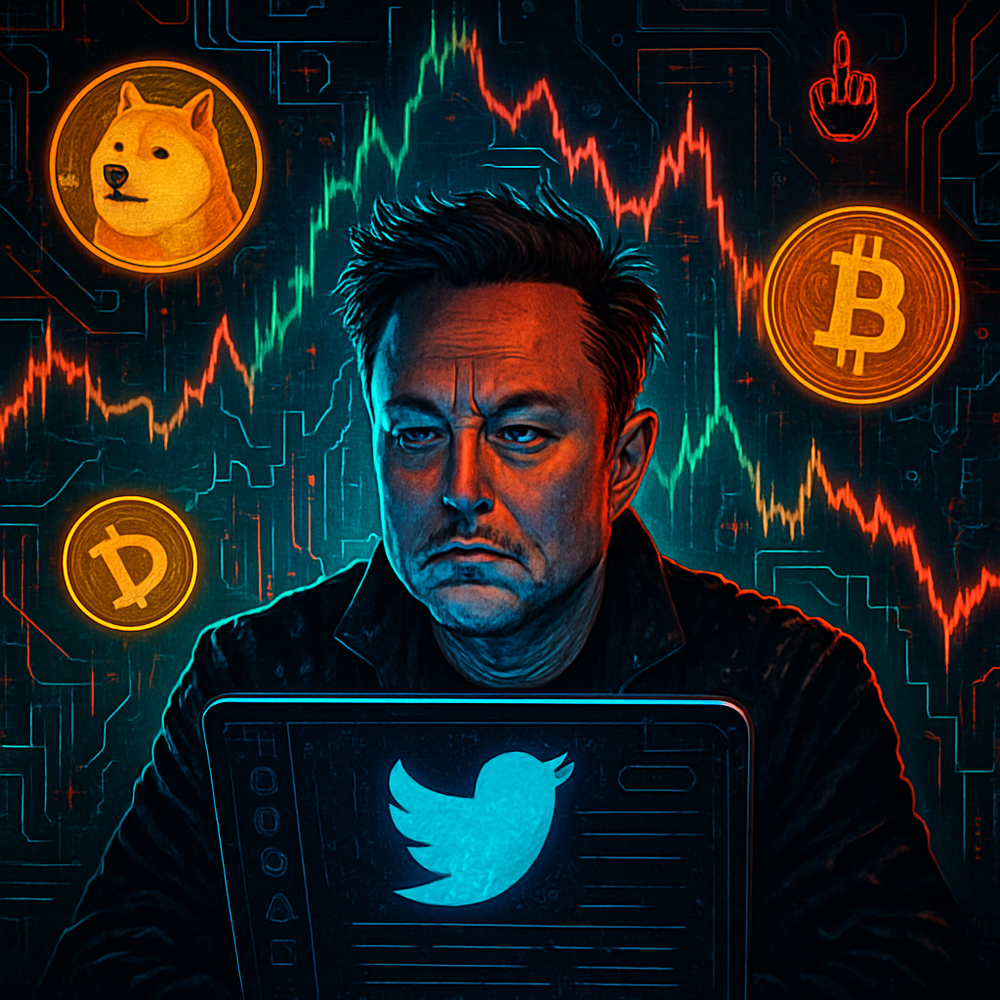
In the United States, Musk didn’t just found companies he weaponized attention. Public markets fed Tesla. Government contracts helped launch SpaceX. Social media turned his personality into a multiplier on everything he touched. When he fired off the notorious “funding secured” tweet about taking Tesla private at $420 a share, regulators slapped him and moved on; the story only deepened his myth. He joked, memed, hinted, and at times seemed to dare the Securities and Exchange Commission to keep up. Crypto traders watched his Dogecoin gags like oracle signals. Retail investors rode emotional whiplash. The line between visionary leadership and market manipulation blurred and he kept building.
That’s the American paradox: the same noisy, lightly policed information environment that lets a billionaire jerk markets around also lets him evangelize electric vehicles, reusable rockets, and big bets on AI at planetary scale. Attention becomes capital. Controversy becomes fuel.
The Chinese Path: Genius in a Gilded Cage
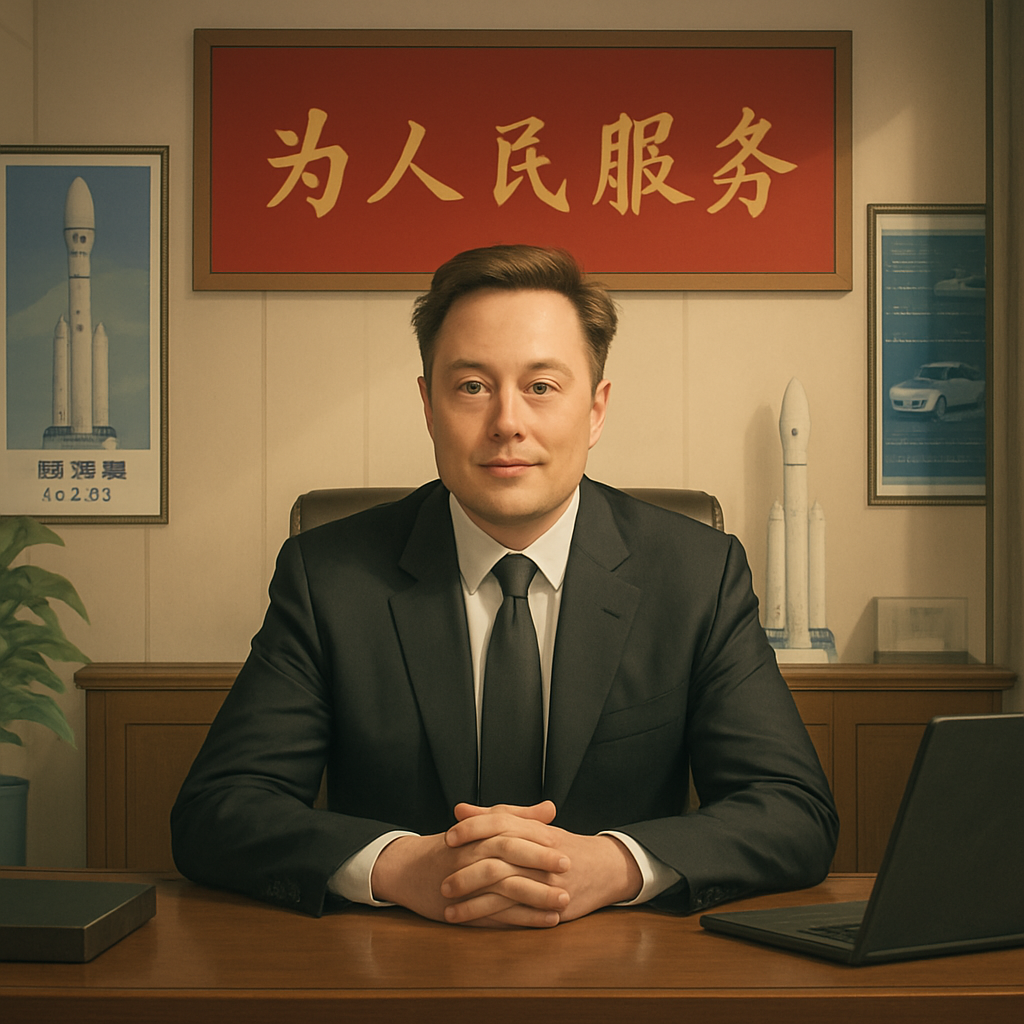
Shift timelines. Musk is born in China. The state tracks talent early; he’s routed into elite engineering schools, then into state‑aligned labs. His battery math is brilliant, his propulsion models bold but none of it lives on a personal social feed. There is no global cult of personality because there is no platform to build one. Public messaging flows through approved channels; breakthroughs are credited to institutes, partnerships, ministries.
A “Chinese Musk” might help a state champion leapfrog EV storage density or lower launch costs for the national space program. His designs could power Belt and Road energy grids or satellite constellations serving strategic goals. Ambition survives but it’s captured, directed, absorbed. The wild impulse to rename Twitter “X”? Sanded down long before it threatens information control. Individual spectacle is inefficiency; the system optimizes it away.
Ethics & Enforcement: Where Lines Actually Hold
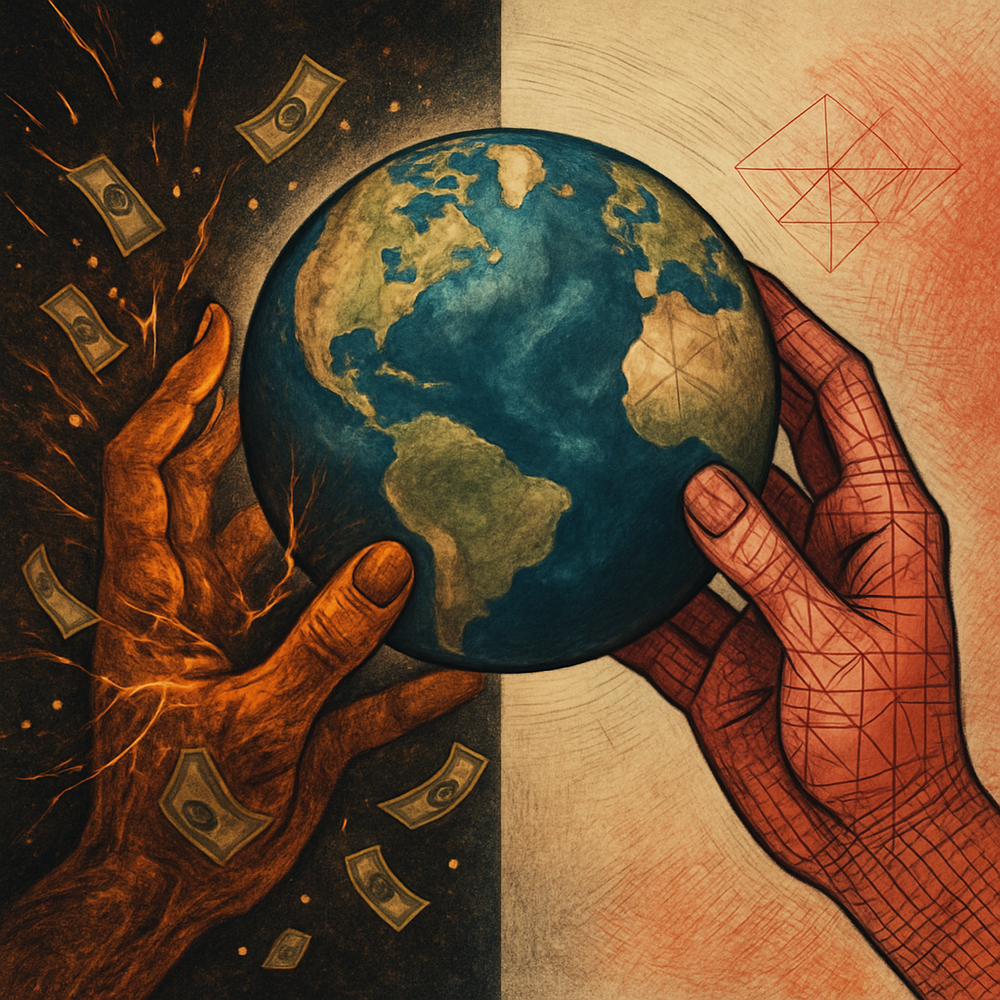
Here the contrast cuts deepest. In the U.S., rule‑bending often precedes rule‑writing. Innovators move fast; regulators litigate after the fact. Markets swing in the gap. Musk learned to surf that space sometimes paying fines, sometimes settling suits, rarely slowed for long. Ethical gray zones weren’t bugs; they were operating space.
In China’s high‑stakes, high‑control financial and communications environment, that gap narrows. Public signaling that moves capital without sanction can bring career‑ending intervention. Crypto speculation? Curtailed. Off‑platform influence? Monitored. A Musk who jokes markets higher one week and lower the next never makes it past risk management. The system doesn’t wait to fine you later it prevents the behavior now.
So which world is more ethical? The American one that tolerates chaos in exchange for moonshot outcomes or the Chinese one that suppresses volatility and, along with it, the rogue sparks that sometimes ignite revolutions?
Innovation Stakes: Disruption vs. Directed Progress
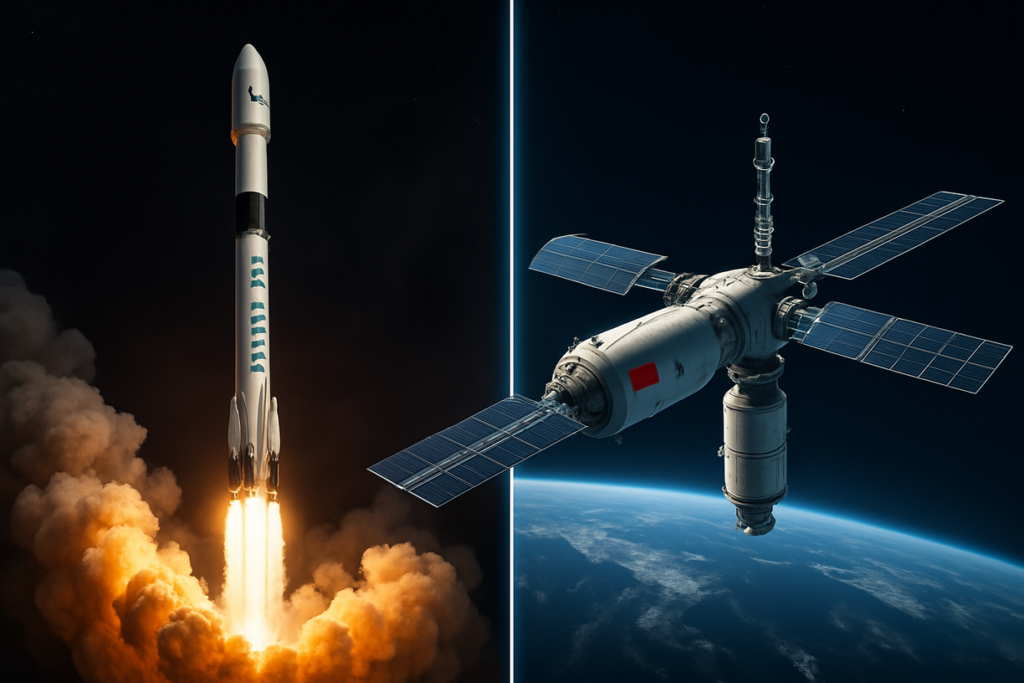
Tesla thrived because it didn’t have to ask Detroit for permission. SpaceX iterated by blowing up prototypes until landing boosters felt normal. That pace depended on capital willing to stomach spectacle, regulators willing (or forced) to flex, and media willing to narrate risk as legend. Strip those conditions away and you still get progress but it skews incremental. Safer. Slower. Consolidated.
A state‑channeled Musk might deliver world‑class batteries faster to mass fleets but without the branding shock that made EVs aspirational. He might advance orbital lift capacity but inside a long‑cycle program where failure is hidden, not livestreamed. Iteration happens, but the learning loop is framed by bureaucracy, not by the adrenaline of public failure.
Do We Want the Genius or the System That Makes Him Possible?
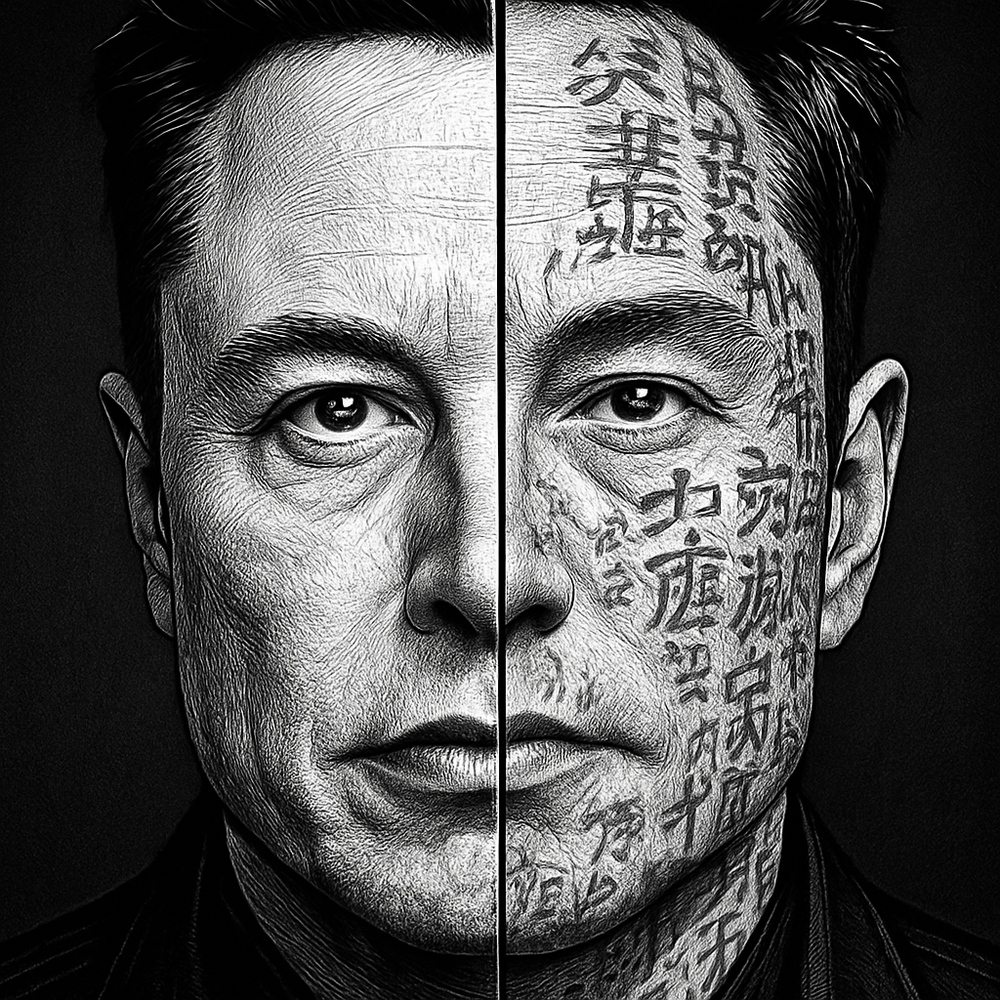
Maybe Musk’s most controversial traits impulsiveness, brinkmanship, appetite for spectacle aren’t side effects. Maybe they’re structural features of the environment that funded his wins. The freedom to overreach, misstep, rile regulators, and still raise capital is part of what turned improbable ideas into industries. That freedom also burned investors, amplified misinformation, and concentrated influence at unsettling scale.
Under Chinese control, we might get steadier advances in batteries, launch systems, and grid tech without the cult, without the pump‑and‑dump drama. But we’d likely never get Elon Musk the cultural force. The name dissolves; the work remains.
So here’s the uncomfortable takeaway: if you want civilization‑scale leaps, you may have to tolerate the chaos engines who build them. Systems that sand off the edges also sand off the velocity.
In the end, we didn’t just get the Musk we deserved we got the Musk our system bred: brilliant, erratic, leverage‑seeking, and relentlessly tuned to a market that rewards disruption louder than restraint.
1 Comment
Awesome scenario! haha
Leave a Reply